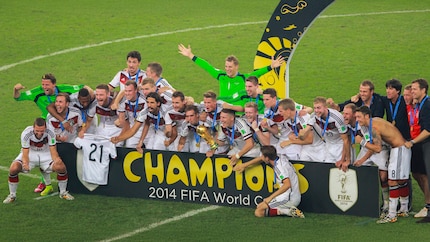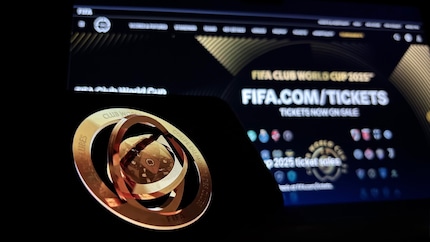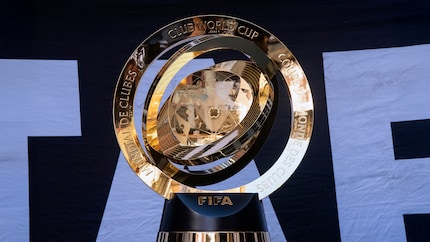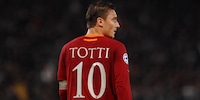
Background information
Preview of the 2026 World Darts Championship: a record field starts at Alexandra Palace
by Kim Muntinga

Prestige, profit, power: the new Club World Cup is FIFA President Gianni Infantino’s biggest deal – and quite likely the greatest absurdity in the history of global football. Time to pick this circus apart.
Whoever controls the calendar controls football. For a long time it was UEFA, the organiser of club football. While it shifts billions every year with the Champions League, FIFA only gets its huge show every four years: the World Cup.
This is what FIFA wants to change. It wants a piece of the pie, or rather take the whole thing. By hook or by crook if necessary. That’s why the association quickly came up with the Club World Cup: 32 teams, every four years, from 14 June to 13 July taking place in the USA in 2025. A festival of globalised club football, somewhere between a World Cup show and Champions League drama.
At least that’s how FIFA’s president Gianni Infantino described it. In reality, the tournament is a colossal display of self-aggrandisement. Plus another massive effort for a sport where the players, fans and clubs have long been overexerted.
No, the new Club World Cup isn’t a gift to the fans. It’s an attack on UEFA. On national leagues. But above all on their sources of money. It’s the association’s first attempt to gain a regular foothold in highly lucrative club football – an area that’s largely been closed to FIFA to date.
The current system poses a problem for FIFA. Its main source of income, the men’s World Cup, only takes place every four years. In 2022, it generated around 7.5 billion US dollars in revenue through TV rights, sponsorship and tickets. A record number. But one that can only be broken every four years.

UEFA, on the other hand, has an annual income that generates piles of cash. In 2023, it generated around 3.6 billion euros from the Champions League, Europa League and Conference League alone. That’s over four billion dollars. Per season. In fact, the reform implemented last year is likely to have further increased income.
And this income is not to be sniffed at. UEFA pockets around 15 per cent. FIFA takes a cut of 20 per cent. With the new Club World Cup, Infantino is expecting two billion dollars in revenue per tournament cycle (page in German), one billion coming from TV rights and another from sponsorship. That leaves FIFA with a juicy profit of around 400 million dollars.
Not bad for a charitable, tax-privileged and self-proclaimed non-profit organisation.
But it’s not just about control and money for Infantino. It’s also about his legacy. His name’s engraved twice on the new trophy. The fact that he managed to enforce this tournament despite the resistance of almost all stakeholders – UEFA, the players the leagues and the coaches – doesn’t seem to preoccupy him one bit.
A year ago, Spain’s La Liga boss simply said «eliminate it!». The FIFPro association is even considering a lawsuit because FIFA is said to have violated EU law (page in German). But Infantino isn’t backing down and sees this as a «new era of club football» that couldn’t be more glorious or exciting.
Nevertheless, this farce can’t hide the fact that the new Club World Cup isn’t about the fans, sporting fairness or global development, as Infantino hypocritically preaches (page in German). It’s all about returns. And who gets to play is only partly down to how good they are. After all, there aren’t even any qualifiers. It’s FIFA that decides who plays.
Clubs including Premier League winners Liverpool and Spanish champions Barcelona aren’t part of the tournament. Unlike Inter Miami: they’re guaranteed a spot based on their «host wild card» status – not because they’re the best team in the US, but because Lionel Messi plays for them Then there’s Auckland City, because Oceania also needs a participant. And Red Bull Salzburg from Austria, because, erm, who knows?

The result are games like Ulsan HD against Urawa Red Diamonds, played in a football stadium, broadcast at midnight CET and featuring players who’ve been pushed beyond their limits. City player Rodri even called for a strike, former Liverpool coach Klopp called the tournament «useless» earlier this year, City coach Guardiola mentioned an «unsustainable schedule» at the end of 2024 and German national team coach Nagelsmann recently called the Club World Cup a «brutal burden» (some pages in German).
But all the outrage had no consequences. All the players are on the pitch, shoulder to shoulder with FIFA, the association they were massively criticising.
However, this doesn’t change the fact that the fans aren’t excited about the tournament. Ticket sales are sluggish and prices for seats in the stadium were recently slashed by over 90 per cent (!) due to the lack of demand (article in German). To avoid embarrassing TV footage of gaping holes in the stands, FIFA has resorted to smoke and mirrors. In Seattle, entire blocks were blocked for the Sounders’ first match against Botafogo and fans were moved to the lower tiers. That way, the stadium looked full on TV screens.
Not to mention that this was done in the USA, where every semi-large sporting fixture with an event status equals full stands.
As if that wasn’t enough, whoever owns a tournament is also allowed to sell it. And FIFA had big plans: broadcasting rights for one billion dollars, global reach, new markets and new sponsors. But there were no buyers. At least not at first.
The first TV deal with American tech giant Apple unexpectedly fell through (page in German). Allegedly because the offer was far below FIFA’s expectations. After that, nothing happened for a long time. According to The Telegraph, one British broadcaster even offered zero pounds, assuming that no higher bid would be placed. In other words, the run on broadcasting rights was limited. No wonder when football giants are playing against unknown clubs from around the world at ungodly times.

But then there was a breakthrough one day before the group stage draw. Virtually overnight, FIFA presented the sports streaming service DAZN as their global partner and announced a spectacular TV deal that would bring in over one billion dollars (page in German). Sounds like a last-minute rescue, but probably more likely a conjuring trick.
Why? Because just weeks later, it was revealed that the Saudi sovereign wealth fund PIF had invested in DAZN for a reported 1.1 billion dollars. In other words, almost the exact same amount DAZN paid for the FIFA rights. And just six months after Saudi Arabia was awarded the 2034 FIFA World Cup pretty much effortlessly. You could say that the money was channelled from Riyadh via DAZN to FIFA as a thank you. A global display of sports policy influence.
FIFA itself has kept shtum about the details. As has DAZN. But the timing is striking. At first, nobody wants to pay for the Club World Cup Then the Saudis get on board with DAZN. And suddenly, DAZN is able to stream the entire tournament throughout the world. In some countries, such as Germany, even for free. And FIFA still gets its money. A mere coincidence? Or another building block in the Saudi master plan to use sports to gain global authority?
Either way, there’s a nasty aftertaste to it.
No matter how much players and clubs rail against the Club World Cup: economically, no one can afford to snub the tournament. The winner of the Club World Cup will pocket up to 115 million US dollars in just seven games (page in German). By comparison, it takes 17 games plus winning the title to make similar amounts in the Champions League. In other words, more than twice as many games for just a little more money.
However, it would be simplistic to blame FIFA alone for this mess. The clubs and above all the players should also take a good hard look in the mirror. Bayern’s honorary president Karl-Heinz Rummenigge aptly summed it up earlier this year by saying something along the lines of: if players are asking for ever higher salaries, crazy bonus payments and astronomical handouts, they shouldn’t be surprised if the system has to find new sources of income at some point.

Clubs that really make money and aren’t cross-financed by Gulf states or artificially beefed through trick sponsorship, hardly exist any more. The debt overload in leading European football is weighing heavily. Even alleged flagship club Bayern Munich is said to be kept afloat via alternative channels, namely state funds from Dubai (page in German). So if players aren’t prepared to take pay cuts and happy to take splurging on an entourage to the next level, they’re partly responsible for the physical and financial overexertion.
Because even the most ludicrous transfer fees at least remain in football’s own economy, where they’re reinvested in new transfers or even in the club’s own infrastructure. Salaries and commissions for players and agents, on the other hand, are swallowed by yachts, sports cars and villas and don’t benefit the game. Instead, they’re lost in luxury. And to enable this level of luxury, schedules need to be filled and new competitions invented.
FIFA’s simply supplying the pitch and everyone’s playing along – players, clubs, agents and sponsors. Modern-day football has long since degenerated into a global wheel of fortune. And everyone’s happy to spin it.
I write about technology as if it were cinema, and about films as if they were real life. Between bits and blockbusters, I’m after stories that move people, not just generate clicks. And yes – sometimes I listen to film scores louder than I probably should.
Interesting facts about products, behind-the-scenes looks at manufacturers and deep-dives on interesting people.
Show all
Background information
by Kim Muntinga

Background information
by Martin Jungfer

Background information
by Martin Jungfer